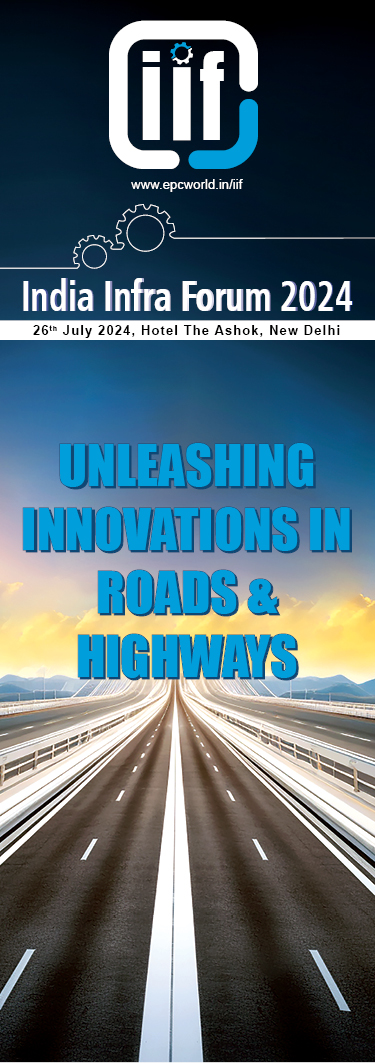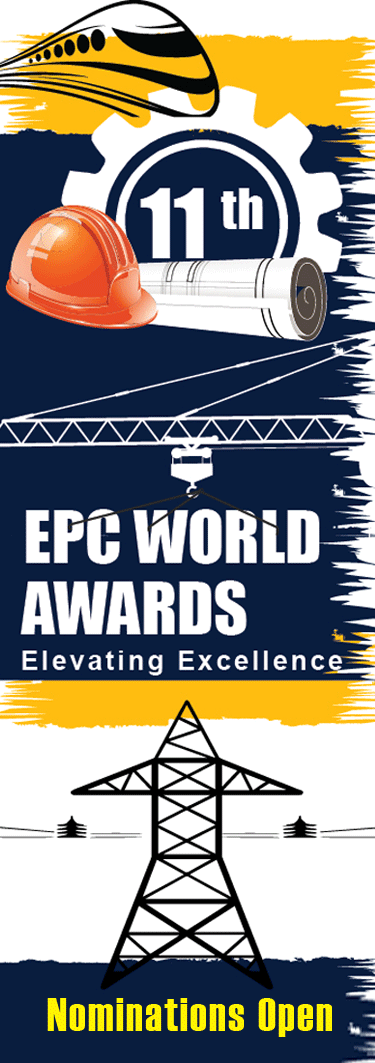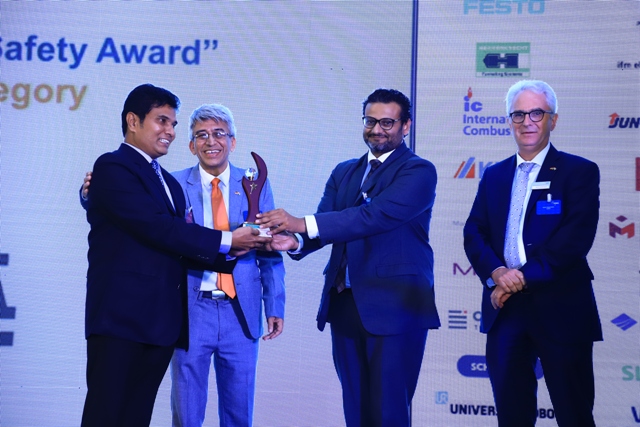The 8th VDMA Mechanical Engineering Summit was held on 6th September 2019 at Hotel Sheraton, Bangalore and was attended by around 250 people.
The Summit commenced with a welcome from Rajesh Nath, Managing Director, VDMA India. Nath spoke about the year 2019 which was eventful in many ways starting from the domestic side where Narendra Modi government was re-elected with a thumping majority leading to beginning of Modi 2.0 era and on the global side the escalating trade war between the US and China is rippling through the global economy, hurting confidence among US small businesses, crippling trade among industrial giants in Asia and hitting export-oriented factories. The glooming uncertainty of Brexit followed by the slump in the automotive sector in India in the first two quarters of 2019 has already raised a lot of pertinent questions including where the Indian economy is heading for. But this is the ideal time to consolidate and also to have an optimistic view. The monsoon revival followed by a lot of positive steps taken by the Government of India to boost investment and growth will eventually help India to come out of the current situation. This was followed by a special address by the Guest of Honour Vinay Kumar Katyal, Director, Bangalore Complex, Bharat Electronics. In his speech, Katyal mentioned that there is a wrong perception that most Public Sector undertakings in India were not performing well and incurring losses. Contrary to this perception, Bharat Electronics had a turnover of 11000 crores in 2018. The fundamental reason for success is the transition from a manufacturing organization to a technological solution provider. Margit Hellwig-Böette, Consul General, Consulate General of the Federal Republic of Germany, Bangalore gave a special address on Innovation, Digital Workplace & Startups. She mentioned that the speed of innovation is slowing down globally because of the trade war between the US and China and there is a lookout for a motivated young workforce and in this regard, India is in a comfortable position.
Ulrich Ackermann, Managing Director of Foreign trade division, VDMA Frankfurt then gave a presentation on the challenges of global trade. Global trade and investment or broadly, globalization, is a common market condition for all countries of the world now. However, it is not free from challenges. There are seven major challenges to global trade and investment the world is facing now starting with economic warfare. The world is experiencing increased conflicts, major economic powers are seizing influence, financial sanctions are being used as a weapon, and the Internet is breaking into pieces. Therefore, the international flow of money, information, products and services may slow down.
On occasion of the Summit, a Knowledge paper on “Automotive industry-Impact due to Electro Mobility” was released by BDB India. The study came out with very interesting inputs with regard to Electric Mobility. The prices of battery have almost come down by 70%, rent sharing has started getting preferences, and also the subsidy announced by the Government on EV buying would have a positive impact. According to this report the public transport, two-wheeler and three-wheeler segment are expected to be quicker in adapting to EV in India.
The Technical session I commenced with a presentation on Macroeconomics Trade and Digitization by Suvir Davda, Global Market Corporate Sales, HSBC, India. Davda mentioned that there is a need to watch out for US-China trade tension, RMB move, domestic slowing down of the economy and resultant impact on capital flows. On the positives, lower oil prices and a possible movement of global supply chains to India could give a push to exports. The next presentation on Foreign Trade benefits and GST update given by Prashanth Bhat, Partner Indirect Tax, Deloitte. Some important points that were mentioned during the presentation were the WTO Agreement on Subsidies and Countervailing Measures permits the host country to provide export linked subsidies when the gross national income per capita is less than USD 1,000. The last presentation before the lunch was from Debabrata Sinha, Chief Financial officer & VP, Rittal India. He shared his experience on Anti-profiteering in the engineering industry and mentioned that the anti-profiteering framework under the goods and services tax (GST) has been extended by another two years.
The post-lunch technical session began with the release of the report “Industry 4.0 and its impact on the people practices- within the HR domain” prepared by the HR Strategy Partner Maier+Vidorno. The report tried to elucidate the key strategies and roadmaps required by HR to successfully restructure the various departments within the company and to pursue the establishment of end to end Industry 4.0 technologies. By quoting that “Industry 4.0 is not a destination, but it is a journey”, it was emphasized that there is a need for continuous organization-wide change coupled with a clear vision on the end goal.
The theme of Technical Session II was Industrial Automation to Industrial Autonomy. It began with the presentation on the Future on Automation by M R Subramanya, Vice President, Siemens Technology and Services. As per Subramanya, today’s automation systems have excelled in efficiency as well as in quality and reach the market within months of product development. However, the classical automation systems of today are largely data-driven as well as operated under crystal clear instructions from a human being and hence, lack the flexibility that is required to categorize them as “Autonomous”. For an Automation system to become self-learning, the existing data-based decision making must evolve into a more flexible inference-based system, where the human interaction is confined to a bare minimum. This was followed by a presentation by Shankar G Rao GM & Head, Anuradha Preet, Strategic Consultant – Robert Bosch Engineering. The presentation gave an overview of the salient role played by the employees and their effective re-skilling in the successful realization of industry 4.0 throughout the organization. With the RBEI NxT 2025 initiative, Robert Bosch aims at training over 20000 associates per year through tailored Artificial Intelligence and Data Science courses that are focused on making them competent for a digital future. The presentation concluded with Anuradha sharing Robert Bosch’s vision for the future and quoting the following: “By 2025, all our products will either feature AI, or AI will have been used in their lifecycle of manufacturing”. The final leg of this session was the presentation on Future Business and its challenges in the Manufacturing sector by Dr Eric Maiser, Head of VDMA Competence Centre Future Business. The presentation focused on the technologies trending in the year 2030 and the key activities being carried out by the VDMA Start-up Machine in coaching start-ups that build their businesses with futuristic technologies at the core.
The final session of the summit was devoted to “India Marching Towards a 5 Trillion Dollar Economy – Role of Manufacturing”. This Panel discussion was moderated by Rajesh Nath, Managing Director, VDMA India. The participants in the discussion were Vivek Bhatia, Managing Director & CEO Thyssenkrupp Industries India, Rashmikant Joshi, Managing Director, Festo India, Guruprasad Mudlapur, Managing Director, Bosch Automotive Electronics India, Norbert Koenig, Vice President- Asia Pacific & Managing Director India, Seco Tools India and Mr Satish Sadasivan, Managing Director, Schunk Intec India. The discussions began with Nath, asking each of the panel members to explain the readiness of Indian SMEs in adopting Industry 4.0, followed by the impact of GST in reforming the business game and the importance of Re-Skilling as well as the Industry-Academia interaction. The panel discussion ended with a rapid-fire round comprised of witty questions and was well appreciated by the audience.
After the panel discussion, the stage was set for the 2nd VDMA Manufacturing Excellence Awards aimed at recognizing the VDMA members who have implemented methods either in energy efficiency and conservation or improvement in work conditions and work safety in their manufacturing process. For the “Energy Efficient and Conservation Award the winners in the large category were KSB Pumps and the winners in the small & medium category were Vulkan Technologies. In the “Work Condition and Work Safety Award” the winners in the large category were Sartorius Stedim India and the winners in the small & medium category were SMS India.
@EPC World Media






